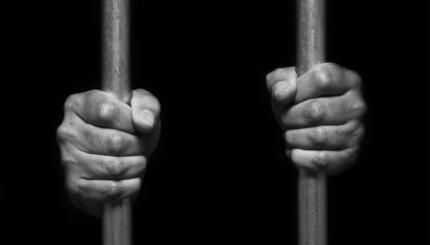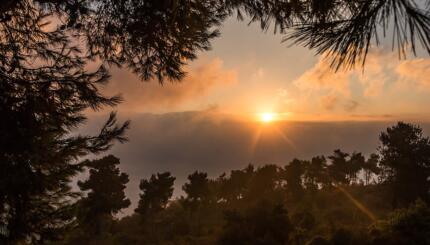Campers Praying at Camp Be’chol Lashon
“Why do we pray?” I asked before we entered our makeshift sanctuary. We had gathered at the cabins. Dressed in white, we walked along the road accompanying the Torah, the quiet solemn march was visually powerful. But even with this wonderful set up, part of me worried. I attend a great many Shabbat services in a variety of settings, formal and informal, Orthodox, Reform, unaffiliated. Far too often the young people have trouble engaging. They don’t sing along. They fidget. They talk. They don’t seem to pray.
So while the question was genuine, I was also hedging my bets. Trying to have the campers set up a framework that made sense to them and would allow them to find their own way into prayer. But I need not have worried. Kids pray at camp.
Throughout the summer, my social media networks –which admittedly have a strong clergy faction -have been filled with reports of inspiring prayer services at camps across the country. Early in the summer I had dinner with a woman in her 70s, who recalled the yearly ritual of a day spent in prayer each summer, mourning the destruction of the Holy Temple in Jerusalem. Over 50 years later, it remains one of the most powerful prayer experiences of her life. I can still recall sitting under the trees by the lake when I was not even ten years old and writing my own prayers. My pride at having my words included in our prayer book still resonates. I often hear adults mourn the really spiritual praying they were able to do at camp but eludes them as grown ups.
At Camp Be’chol Lashon where I work now, the campers lead the service. Some are very familiar with Jewish prayer while others are encountering it for the first time. In pairs or small groups they take their place in front of the community, explain, lead and engage. There is lots of music, some discussion, and tons of participation. It is a tight community. There is a sense of intimacy. The atmosphere is serious but relaxed. Campers easily offer up thing for which they are grateful, the names of those in their lives who are sick, the memories of those who have passed.
Away from camp, young people pray –but mostly it is a private affair- when the personal needs strikes. Judaism encourages communal prayer but outside of camp the tone is different, the sense of empowerment and fun can be lacking.
Spaces where children take the center stage for prayer are less common. Schools come with the baggage of expectations and evaluation. Youth group gathering are few. Most sanctuaries are dominated by adults and even on the occasion of a Bar or Bat Mitzvah service when a child is welcomed into their growing role in the community, the adults, their rules, their seriousness and tunes dominate.
The campers at Camp Be’chol Lashon easily provided answers to my “why pray” query. “To talk with God.” “To let our wishes be known.” “To give voice to our hopes.” As I facilitated the short conversation, which also touched on the fact that one need not believe to participate, their answers reminded me that young people understand prayer in the abstract. The inspiring service that followed, was proof positive that given the tools, freedom and encouragement, young people can and do pray.
Shabbat
Pronounced: shuh-BAHT or shah-BAHT, Origin: Hebrew, the Sabbath, from sundown Friday to sundown Saturday.



